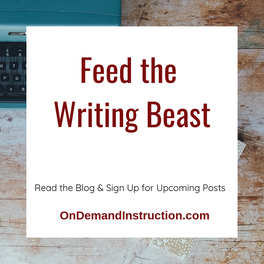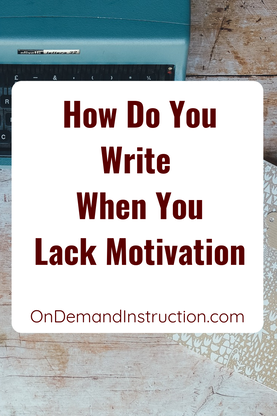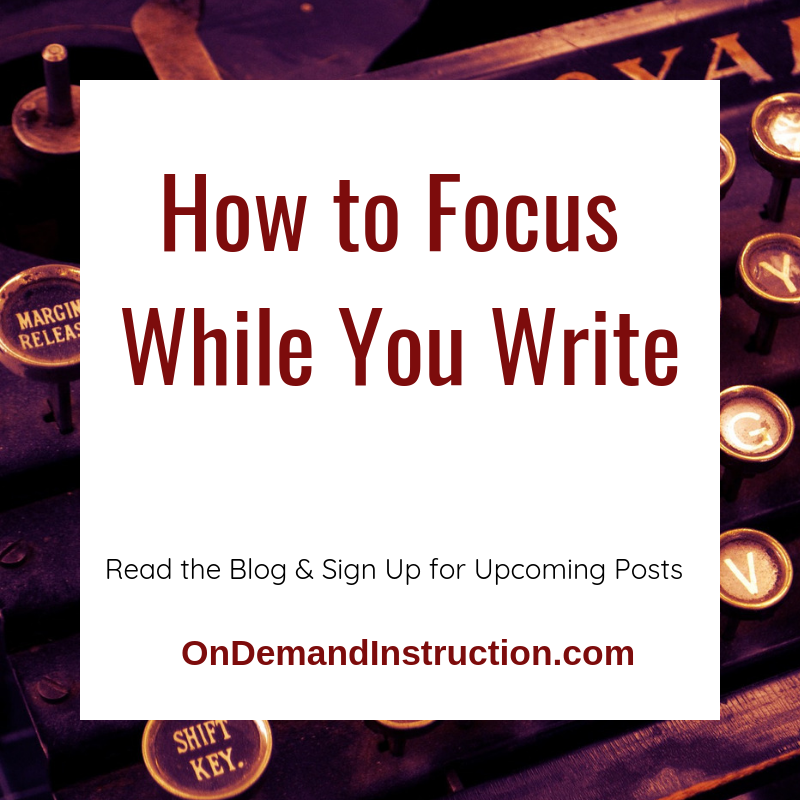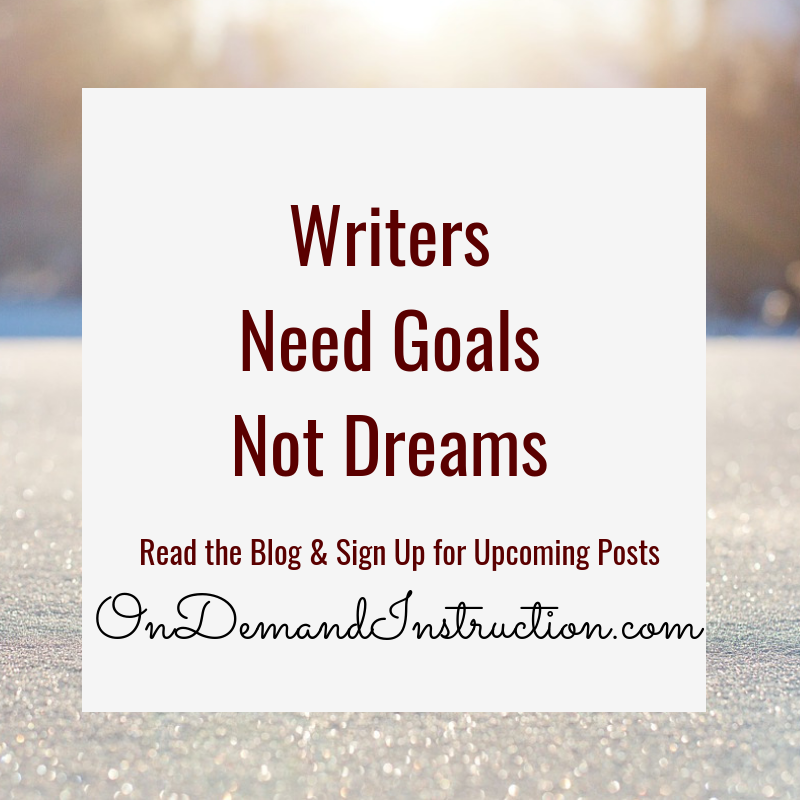
Ever since I can remember, I’ve heard a second voice in my head. We all have the usual inner monologue, but creative people oftentimes have a second voice that narrates the creative process. I’ve referred to mine as the nuisance, the artist, and most recently, the beast.
At the least opportune moments, the beast comes up with amazingly creative ideas and starts narrating in my head while I’m busy with another task. My beast is especially chatty while I’m driving or working out at the gym. And naturally, my beast never chooses to share incredible story ideas when I’m sitting at the computer. She only talks when I’m without paper and pen. The ironic thing is that I feel like I would lose my creative energy altogether if I didn’t have that second voice in my head. Without her, I might limit my pursuits and stop writing altogether. When she starts rattling off an idea in my head, the drive to write explodes and writing is all I can think about. She can drop a few words on me, and in an instant, all I can think about is getting back to my book and dedicating more time to the craft.
If you have an inner creative beast, then you know what I’m talking about. That inner voice that whispers sweet everythings in your ears and seems to have the pathway to exceptional creativity laid out in front of her. That’s the one.
A lot of writers have talked about this situation. Elizabeth Gilbert gave a Ted Talk where she discusses her writing process and how she is overcome with magical ideas and must stop everything she is doing to write them down before they’re lost. Maya Angelou wrote about being overwhelmed with a creative idea from an inner voice and having no choice but to stop and write when the moment hit. I used to ignore my beast, but after a while, I realized that if I fed her, my creative process became more efficient and productive. I can’t necessarily pull the car over mid-commute to collect the ideas she whispers, but I can support the creative process when I’m not writing. Here are some ways I feed that inner voice:
Get Up and Move
Ray Bradbury talked about walking as a vital element in his creative process. He walked most nights after the sun went down and even got himself into trouble. As the story goes, one night police officer questioned him extensively about why he was walking around town at night (which later became the impetus behind his short story “The Pedestrian”). Of course, many writers are active and make a point of getting outdoors. Stephen King walks every day. Henry David Thoreau, Isabella Bird, and Sarah Orne Jewett were all known to be outdoor enthusiasts. Of today’s writers, Jon Krakauer, Tom Wolfe, and Jim Carroll are all active outside of their writing. Writers are well-known for spending long hours sitting at the desk, but getting up and moving are likely ways to feed the writing beast. When you move your body, you alter your body chemistry by releasing endorphins, deepening your breath, releasing toxins, and boosting energy. Exercise is a personal choice: Some writers are drawn to weight training, whereas others prefer a hike through the trees. I’ve found that when I exercise, my thoughts are clearer, my stress level is lower, and my ability to focus on writing is higher. Spending time moving the body can help ignite your creativity.
Create Something Different
Most of the creative people I know do double duty. They write, but they also crochet, paint, or garden. The writing process isn’t just finding the right words for the right piece; it’s also fueling the fire on a continual basis so that you can keep writing. Many writers deal with some form of writer’s block. It sometimes looks like staring at a blank page with no ideas on what to do. Other times, it feels like a total lack of motivation to write anything. It can also look like a downward spiral where each day it’s harder to write. Sometimes, it can feel overwhelming just to sit at a desk, and sometimes writers lack the mojo to start writing anything. When this happens, feed the creative beast with some other type of creativity. Stop writing, create something else, and then come back to your writing. Crochet, garden, carve wood, restore that old motorcycle, take photographs, draw. Whatever your back-up creativity process is, use that as a way to feed the creative beast. When you engage in a creative exercise, it opens up the pathway to writing and allows you to restart that engine.
Read Outside your Genre
Even though it’s hard to make time to read, we have more reading options available to us than ever. Some of my coworkers listen to audiobooks while commuting, I have several friends who use an e-reader, and a colleague swears by listening to podcasts. Although I believe that reading ink on a paper page is the ultimate reading experience, I don’t think that means other forms of reading and ingesting material should be discounted. I always have an audiobook going in my car, and I get a lot of ideas for my writing from listening to audio books. I read the newspaper on Sundays. I'm reading at least three books at all times. The benefits we gain from reading are nothing short of phenomenal: developing empathy, expanding our understanding of other cultures, extending our professional development, and increasing comprehension and processing abilities. Reading also supports the creative process. It feeds the creative beast. When we read outside of our genre, we come across many tools to use in our writing: different sentence structures, facts and opinions that we could integrate into our stories, methods of description, and different ways to present ideas. Sometimes, reading in the same genre that we write can stifle our creativity. It can limit our thoughts and even encourage us to overly imitate another writer’s style. In contrast, reading outside of our genre can create new pathways for ideas, style, and presentation. The little voice in the back of your head can be a powerful tool when you’re putting the pen to the page. If you support your writing process by feeding the creative beast, then your process is likely to be more efficient and productive. The creative process includes more than just writing. It is also about becoming better versions of ourselves, expressing our creativity in different ways, and learning on an ongoing basis. Feed your creative beast, and may the ideas keep flowing onto the page for you. Related Blog Posts3/16/2019 04:51:59 am
So true! The writing 'beast' / muse needs a watch. It seems to show up when I'm in the middle of other things I NEED to get done. I've learned, though, to play the ideas around in my head while at work, and I also write the basic idea down.
Patricia Martin
3/20/2019 08:37:42 am
It's the story of my writing life! I get amazing ideas while I'm driving or hiking or skiing, but when I sit down at the laptop, it takes effort. Comments are closed.
|
About the SiteWelcome, Writers! Archives
September 2023
|






 RSS Feed
RSS Feed